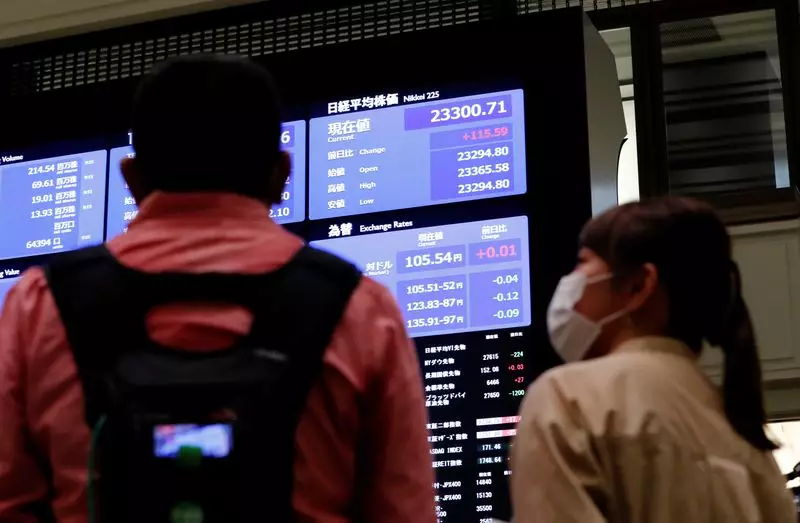In the week ending July 5, foreign investors poured a significant amount of money into Japanese stocks, totaling a net purchase of 916.05 billion yen, marking their most substantial weekly investment since January 12. This surge in investments was primarily fueled by a market rally and optimism surrounding the solid corporate earnings expected in the second half of the year. The Nikkei share average experienced a significant jump of 3.36%, its best weekly performance since March 22, while the broader Topix index also saw a healthy rise of 2.65%. Notably, the Nikkei reached an all-time high, surpassing 42,000 points for the first time, and the Topix index achieved a record closing high of 2,929.17.
The increase in U.S. megacap growth stocks last week had a positive impact on Japanese technology shares, with companies like SoftBank Group witnessing an impressive surge of 8.04%, and semiconductor testing equipment maker Advantest seeing a rise of 3.2%. This interplay between the U.S. and Japanese markets highlights the interconnected nature of global investments and the influence of multinational corporations on various stock exchanges.
While foreign investors showed a strong interest in Japanese stocks, they also decreased their holdings in Japanese bonds for the fourth consecutive week. Selling off long-term bonds worth a net 228.8 billion yen and short-term instruments amounting to 876.9 billion yen, foreign investors seem to be favoring equity investments over fixed-income securities. On the other hand, Japanese investors bucked this trend by increasing their stake in overseas debt markets. They acquired long-term foreign bonds worth a net 237.7 billion yen and short-term securities totaling about 96.6 billion yen, indicating a diversification strategy in their investment portfolio.
In a surprising move, Japanese investors withdrew a substantial amount from foreign equities last week, totaling a net disposal of 555.6 billion yen, marking their largest weekly selling since May 31. This shift in behavior could be attributed to various factors, including domestic market conditions, global economic uncertainties, and individual risk preferences. It will be interesting to observe how Japanese investors navigate the volatile market landscape in the coming weeks and whether they will continue to adjust their investment strategies accordingly.
Overall, the recent influx of foreign investments in Japanese stocks reflects the evolving dynamics of the global financial market and the impact of economic developments on investor sentiment and behavior. As market conditions continue to fluctuate, it is essential for investors to stay informed, analyze current trends, and adapt their investment strategies to capitalize on emerging opportunities while managing risks effectively.

